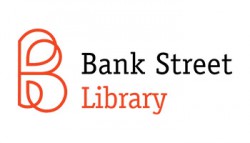Part V: Are All Book Covers Created Equal? Wrap-Up and Reflection
This project wrapped–for the time being— in June. Final thoughts? Best to let the kids do the talking.
New to this adventure? Check out Part I, Part II, Part III, and Part IV.
“I never really noticed all the stereotypes in the book world until this project. It really opened my eyes… I don’t think I’ll ever think about books the same way!”
What did we learn?
“I think the most interesting thing I learned was how little people think about stereotypes.”
“I had so much fun doing the library project this whole year. I learned many things about books and the process of getting a book published.”
“It was good to hear other peoples’ points of view.”
“I liked going to Barnes and Noble–I learned a lot about stereotypes in books, especially books for teens.”
“When we went to Barnes and Noble I thought that was fun! We were being active.”
“I felt it was a good way to get my thoughts on stereotypes out.”
“I really liked the library project. I liked how we read books and found stereotypes. I liked it when we talked about banning, removing, and challenging books.”
“I thought that maybe… we were starting to get offended for small harmless things. But some books are hurtful to some people.”
What stereotypes bothered us the most?
“I realized that there are more books with white kids.”
“Obese people are rarely the hero. They are either lazy or just act disadvantaged. People underestimate them.”
“I think that using words like ‘overweight’ or ‘bigger’ that go around the word ‘fat’ are really hurtful. It suggests that being fat is so bad that you shouldn’t even say the word. It adds to the stigma that fat people have something wrong with them… I also noticed that people always paused before they said a synonym for ‘fat’. People seemed really uncomfortable talking about fat people, which made it seem like there is something wrong with being fat.”
“I thought that learning about the gender stuff was really interesting. It makes a lot of sense to me, and I see gender stereotypes a lot. As we finished, I noticed a lot more stereotypes in clothing and other products.”
“It bothered me when some people said we were being ‘sensitive’ when we noticed issues with books.”
What didn’t we like so much?
“I personally disliked this project. I did not like it because I think what books say should not really change our thinking.”
“I think in the future you should do one class on every topic, and then have each kid do research on one topic and how it has affected them.”
“Maybe next time include more active projects, like art stuff or outside activities.”
How has this project changed us?
“I will definitely use what I’ve learned in this project in the real world.”
“I liked it when we started learning the stereotypes, because it changed my seeing of books.”
“I still choose the same books, but I look at the covers more.”
“I think that now I have a critical eye when looking at books, movies, or TV shows.”
“I think that this project really changed me. I now pay more attention.”
“After this unit I have changed the way I look at books. I now notice things I would not have noticed in the past.”
“I think that we covered a lot of things. It was all very important to me.”
“I liked it when we thought about some toys or books that have stereotypes… I know a lot of us didn’t like it because we didn’t realize it was like that until we read it with our eyes open.”
“I think that this was important for us to do because now I can tell people and spread the word to make a difference in the world.”
EDIT from 2015: Check out the followup series, in which we reflect on how this curriculum has evolved over the past few years, here.
-Allie Jane Bruce



Trackbacks